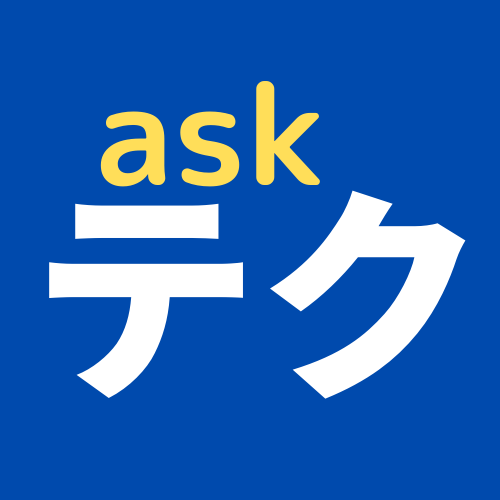目次
AGREE OR DISAGREE: There will be no need to memorise KANJI in schools.
POINTS: Auto-correction / Digital Exams / Emergencies / Ageing Prevention
漢字を覚えるのは私たち日本人にとっても難しいものです。特にまだ子供の時にその意味とともに日常会話では使わない漢字を覚えるのは大変なことです。大学受験が終わってしまえば、苦労して覚えた漢字も実際に書くことはほとんどありません。それでも、特に難しい漢字でない限り、書けて当たり前、社会人の常識とまで言われています。この常識はさらにIT化が進んでも変わらないのでしょうか?
Chat GPTの登場などテクノロジーの進歩は止まらない中、平仮名から漢字への変換は自分で選ぶのではなくパソコンが文脈から適切なものを選んでくれる時代になるかもしれません。既に私が関西弁で書いた文には下に波線がたくさん入り、見直した方が良いことを暗に提示してくれますし、助詞が抜ける口語調で書くと、正しい助詞を提案してくれたりもします。英語でも、スペルを自動的にスペルを直してくれたり定型文などは予測して先に薄いグレーで書いてくれたりする機能は既に普通に存在します。
社会人の中には、最近、漢字が思い出せないという人も少なくないのではないでしょうか?そういった人たちが多くなり、テクノロジーもさらに進化を続ければ、「漢字を覚えなくても良い」という価値観が常識になる日も来るかもしれません。
漢字「書けなくなった」6割 IT普及で急増 – 日本経済新聞
書けないと恥ずかしい!漢字が書けない社会人が知っておくべき一般常識 – ビズパーク
What is Predictive Text? Definition and How to Use it | TechTarget.
肯定派:学校で漢字を覚える必要がなくなる(語数 152語)
AGREE OR DISAGREE: There will be no need to memorise KANJI in schools.
POINTS: Auto-correction / Digital Exams
Introduction
I believe students will no longer need to memorise KANJI in schools because computers will automatically select the correct KANJI from the content of the writing. Additionally, university entry exams are likely to be digitised.
学生はもはや学校で漢字を記憶する必要はなくなると思います。なぜなら、コンピューターが自動的に文脈から正しい漢字を選択してくれるからです。加えて、大学の入学試験もデジタル化される可能性が高いからです。
【解説】
・at schools でも構いません。ただ、He is in school. と言うと、学生であることを含んでいるので今回はin schools にしました。
・何度も出てきていますが、非常に使い勝手の良い熟語です。「~しそうだ」とか「~する可能性/確率が高い」という意味で、現在形で未来のことを言うのに使えます。
・マークシート解答ではなく、PCで受験するタイプのテストです。アメリカのSAT(日本の共通一次みたいなもの)も2024年からすべてこの形式になります。PCで専用アプリを開き、そこに問題が送付され回答もPC上で行います。最初のモジュールは全員同じ難易度の問題(何種類かある)を解き、その出来次第で次のモジュールの難易度がその場で自動的に決定されます。
Discussion 1
Firstly, it’s rare to write by hand in today’s workplaces, and computers can easily convert HIRAGANA into the appropriate KANJI according to the content. Knowing every stroke of KANJI is unnecessary, and people tend to forget them if they don’t handwriting them.
まず、最近の職場では何かを手書きすることは稀です。それに、コンピューターが内容に従って、簡単にひらがなから適切な漢字に変換してくれます。いちいち漢字の全画を覚える必要はないのです。漢字を書かなければ、忘れる傾向にあるのですから。
【解説】
・変換するという英単語はたくさんありますが、この場合はconvert が正解です。convert は他に、exchange の代わりに「お金を換算する」の意でも使えます。
・every stroke で一画一画という感じで、そこから「いちいち全部」というニュアンスです。
Discussion 2
It won’t take long before exams in Japan are fully computerised, following the example of the United States. By offering adaptive or multiple different versions of tests at the same difficulty level, which prevent cheating, digital exams will quickly be implemented nationwide. Consequently, schools will no longer require students to memorise KANJI.
アメリカに引き続き、日本の試験が完全にデジタル化されるのに、長くはかからないでしょう。適応型のテストや同じ難易度のテストを複数用意できる事から、これはカンニングを防ぐのだが、デジタル化された試験は急速に国内中で実施されるようになるでしょう。その結果、学校はもはや学生に漢字を記憶することを要求しないようになるでしょう。
【解説】
・正解率に応じ次の問題の難易度が自動的に決定されるようなテストの事です。ちなみに、4択から答えを選ぶ問題はmultiple choice questions と言います。
・カンニングは和製英語です。英語のcunningの意味は「ずる賢い」「狡猾な」を意味します。
Conclusion
As explained above, advancements in technologies will greatly impact Japan’s school curriculum, and eventually eliminate the need for KANJI memorisation in schools.
前述のように、テクノロジーの進歩は日本の学校のカリキュラムに多大な影響を与えるでしょう。そして、最終的には学校で漢字を記憶する必要は排除されるでしょう。
【解説】
・本来、短く要点2つをもう一度言及するべきなのですが、150字を超えているので短くまとめるため、このような形を取りました。私の意見をサポートする理由の2つともがテクノロジーの進歩によるものだからです。
肯定派:全文(音声付き)
I believe students will no longer need to memorise KANJI in schools because computers can automatically select the correct KANJI from the content of the writing. Additionally, university entry exams are likely to be digitised.
Firstly, it’s rare to write by hand in today’s workplaces, and computers can easily convert HIRAGANA into the appropriate KANJI according to the content. Knowing every stroke of KANJI is unnecessary, and people tend to forget them if they don’t practise writing them.
It won’t be long before exams in Japan are fully computerised, following the example of the United States. By offering adaptive or multiple different versions of tests at the same difficulty level, which prevent cheating, digital exams will quickly be implemented nationwide. Consequently, schools will no longer require students to memorise KANJI.
As explained above, advancements in technologies will greatly impact Japan’s school curriculum, and eventually eliminate the need for KANJI memorisation in schools.

否定派:学校で漢字を覚える必要はつづく(語数138語)
AGREE OR DISAGREE: There will be no need to memorise KANJI in schools.
POINTS: Emergencies / Ageing Prevention
Introduction
I believe it will be still required to memorise KANJI in schools because there may be situations where computers are unavailable, and memorisation helps protect our brains from ageing.
コンピューターが使用できない様な状況があるかもしれないし、それに記憶することで脳が老化しづらくなる事から、学校で漢字を覚えることはこれからもなくならないと思います。
【解説】
・中にはstillは「まだ」「今までの様に」という意味しか覚えていない人もいるかもしれませんが、未来形とともに用いる場合は「これからも」と訳しても自然だと思います。
Discussion 1
As technology has advanced and become more widespread, we often don’t face difficulties for not having immediate recall of KANJI. Nevertheless, it would be beneficial if we can remember as many of them as possible, especially in urgent situations.
技術が進歩し更に普及したことにより、漢字が即座に出てこないで困るようなことは殆どありません。それにもかかわらず、より多くの漢字を覚えている方が有益です、特に急いでいる状況などでは覚えているに越したことはありません。
【解説】
・口語やカジュアルな文章では、代わりにfor nor knowing KANJI off the top of our heads などとも言えます。off the top of one’s head は私の好きなイディオムの一つですが、フォーマルなエッセイには不向きです。
Discussion 2
Memorising KANJI also provides valuable brain training. It has been shown that the more we engage our brains, the more they expand their capacity. Putting effort into memorising KANJI, for example, can enhance our ability to remember other things, potentially delaying brain ageing.
また漢字を記憶することは、重要な脳のトレーニングになります。脳は活性化させるほど、その能力は開花することが明らかになっています。例えば、漢字を覚える努力をすることは、他の事を覚える能力を高める事になり、もしかしたら脳の老化を遅らせる事も出来るかもしれません。
【解説】
・engageは日本語約するのが困難な単語の一つかと思います。文章によって変わります。arrange なども訳すのが難しいなと私は感じるのですが、皆さんはいかがですか。ここでは、「活性化させる」とかなりの意訳になりました。
・Making efforts/an effort to memorise KANJI でも同じことです。
Conclusion
In conclusion, it will remain necessary to memorise KANJI in schools due to the advantages it offers, such as providing convenience in emergencies and helping to prevent ageing.
結論として、その利点、つまり緊急時における利便性や老化防止のために、漢字を覚えることは学校で引き続き行われるでしょう。
【解説】
・今回は肯定派のエッセイとは逆に字数を稼ぐために方法として、サポート案2つをまとめる分を入れています。
否定派:全文(音声付き)
I believe it is still required to memorise KANJI in schools because there may be situations where computers are unavailable, and memorization helps protect our brains from ageing.
As technology has advanced and become more widespread, we often don’t face difficulties for not having immediate recall of KANJI. Nevertheless, it would be beneficial if we can remember as many of them as possible, especially in urgent situations.
Memorising KANJI also provides valuable brain training. It has been shown that the more we engage our brains, the more they expand their capacity. Putting effort into memorising KANJI, for example, can enhance our ability to remember other things, potentially delaying brain ageing.
In conclusion, it will remain necessary to memorise KANJI in schools due to the advantages it offers, such as providing convenience in emergencies and helping to prevent ageing.
こちらの記事もお薦めです。




